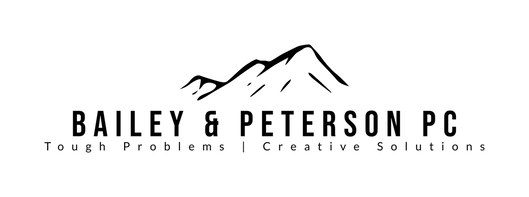|
Succession planning has always been an integral part of estate and retirement planning. For many business owners, especially those in closely held businesses, preparation for succession or the sale of their business is crucial for the owners’ financial future. In light of the global pandemic, we have a situation that’s changing the face of “normal” succession planning. This is also quite relevant to estate planning. If an individual is contemplating a near-term liquidation of a business interest, that may impact the type of estate planning that may be warranted. If an individual lives in a high tax state, consideration of transferring interests to a non-grantor trust in a no-tax state may also be warranted. This Time Is Different Although many business owners have weathered difficult times in the past, and perhaps rebuilt their businesses through several recessions, the current situation feels different. Some business owners experienced very bleak times following 9/11 and were able to recover. They survived the financial meltdown in 2008–2009. Now COVID-19. Business owners face a larger dilemma, which has many contemplating whether it is time to do something different. In the current climate, some businesses are thriving, while many are struggling. How can traffic-dependent businesses, like retail, hospitality, travel, entertainment, and restaurants, survive? Some establishments may modify their service model and be able to limp along, but for others, the scenario is potentially more devastating. Many business owners are starting to ask those deep, meaningful life questions and seriously contemplate their businesses’ future. Some businesses might have adequate liquidity, but owners are thinking more about the financial health of their families. What happens if they get sick? What happens during the next crisis if their business is dependent on their leadership? Do they want to continue to invest their personal wealth or just keep their business competitive? Does it make sense for them to have all of their net worth tied up with an illiquid asset—their business? Reevaluating Priorities This crisis has motivated many people to reevaluate their priorities and what changes they would like to make to their work-life balance. They are evaluating their risk profiles as well as their family’s health situation. Perhaps the long commute, extended hours and six-day work weeks are no longer as attractive as working from home and spending more time with family and friends. For this group, the saved time, and the ability to spend more time with loved ones is altering their thinking. Whatever their reasons, business owners are wondering how and if they should respond. There are options for the way that companies could restructure—they can invest more to grow or stabilize the company or consider a whole or partial sale—each should be evaluated, based on the owner’s long-term goals. Options to Consider An investment in technology or infrastructure can be a drain on liquidity but could build value in the long term and is something to consider. In the middle market, there are still numerous attractive paths to liquidity for business owners. Selling the business and retirement is still an option. But today there are additional choices that may provide more flexibility, especially to those who are not ready to give up working entirely or are looking to take some of their personal wealth out of the business. A partial sale typically involves financial buyers, such as private equity firms, that are looking to purchase all or part of a business. These buyers provide capital and systems to accelerate growth and improve operating efficiencies. Owners typically remain for some period and can retain an ownership position. When the private equity firm sells the company, the owner will get a “second bite of the apple” and enjoy additional liquidity. Communication Communication with all of your personal advisors is key in order to create a plan. Some who had wanted to continue working for the foreseeable future may want a more finite exit strategy. Some who wanted to pass their business on to children may be reconsidering. All of this will have a profound impact on financial and estate planning. Strong companies can still get good value for their business, but more homework and preparation are required in order to maximize value. If you have questions or concerns regarding your own succession plans, Bailey & Peterson, PC is here to guide you through the process. Call our office directly at (303) 837-1660 to schedule your free initial consultation with one of our trusted attorneys today. Comments are closed.
|
Archives
July 2024
Categories |
Proudly powered by Weebly

 RSS Feed
RSS Feed